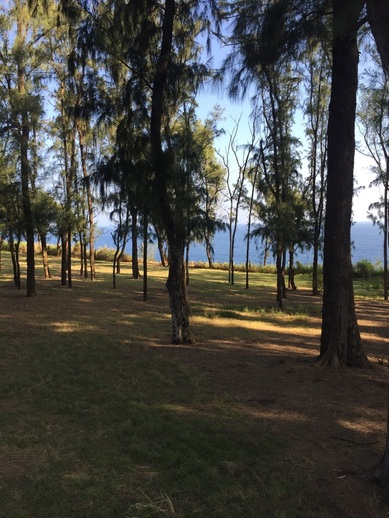
I’ve been sitting down with a new friend, T, occasionally for coffee or happy hour. She and I first met through mutual friends at an outdoor movie screening one evening in our local park this summer.
We don't have too much in common, other than that we’re about the same age—and the unhappy coincidence that her husband died a few days before Mark did. We stared in each other’s startled eyes when we first realized what connected us.
When T and I met a few days ago, our conversation turned, as it usually does, to our losses and traveling through grief. Despite the differences in our background, we’ve walked the same road. Although we’re just a sample of two, and thus hardly a scientific study, our experiences and impressions are remarkably parallel. We are both surprised when we have long conversations with old friends, and they don’t mention our husbands. I think our friends want to be kind and are cautious about not upsetting us, but we both miss the comfort of hearing others remember them. We both have moments when we mentally send out “Enough already, I’m done with this, come on back now,” messages to our husbands. Even now, we sometimes forget that they’re gone and are never coming back. When my plane touched down on my recent trip to a yoga retreat, my first fleeting thought was, “I should text Mark to let him know I’ve arrived,” followed, of course, by the stab of pain when I remembered.
But the worst, we agree, is the overwhelming aloneness. It’s a very specific sensation. T has lots of family in the area, and she (like me) has a son who is currently living at home. I feel well-connected in Seattle now, with friends I’ve gleaned from volunteer work, pottery classes, my writing group, my hiking group and my book group. Friends from Alaska come through Seattle frequently. I’m busy. But what’s missing, the gigantic tear in the fabric, is that T and I don’t have our Special Someone, the person whose bond with us provided such richness in our lives. Mark was my sounding board, my cheerleader, the person who reasoned with me when I was heading out on a strange tangent.
And of course, Mark was there in the night. I still ache for the soft huff of his steady breath and for the warmth of his sleeping body against me. My book group just read Our Souls at Night by Kent Haru. This longing for connection in the night, for intimacy, is at the center of this novel. I wanted to throw the book across the room when I finished it. (Luckily I restrained myself, since I was reading on my Kindle.) The final passages are so grim and hopeless, as if there is no possibility of escaping the loneliness of the widowhood road. I don’t buy it. I may not be there yet, but if I didn’t believe that there were better times ahead, I don’t think I could go on.
———————--
Slowly, bit by bit, my house is taking on the quality of “mine” instead of “ours.” As time passes, I make changes, and I’m acutely aware that each acquisition, each discarded item, each move of a piece of furniture reflects a small step into the future.
The last remnant in the house of Mark’s illness and struggle was the cache of Ensure. It represents one of our last desperate efforts to pump some nutrition into him, before the doctors told us that his stomach had been eaten away by the cancer, and there was no way he could absorb food. I had two dozen or more bottles stashed in a closet, rapidly approaching their expiration dates.
On Saturday morning, I toted them over to the local food bank. I wove between clumps of customers in the long line to get to the door, those waiting huddling under dripping umbrellas or just letting the steady, light rain fall on their hoods and scarves. The kitchen staff at the food bank were happy to have the Ensure; it was on their “wish list.” I pushed the bag into the kitchen aide’s hands and hurried away.
And then I started to cry, tears just slipping down my face, right there in the car. I was so eager to get that bag out of my house and yet, the dilemma is evident…each step forward into the future is also one more step away from my life with Mark.
 RSS Feed
RSS Feed
